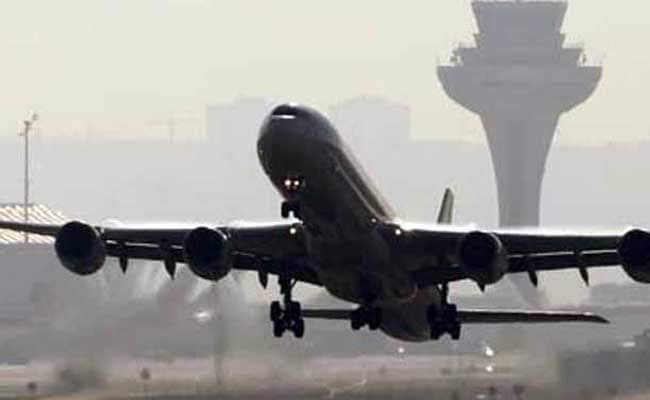
Passengers who repeat an offence would be banned for twice the period of the previous ban. (File)
New Delhi:
The norms for no-fly list to rein in unruly passengers are expected to be ready early next month, the government said today amid a parliamentarian being barred by domestic airlines for allegedly creating ruckus.
A revised Civil Aviation Requirement (CAR) is being finalised after receiving comments from the stakeholders.
The civil aviation ministry has already come out with draft rules for a 'national no-fly list' of unruly passengers for all domestic carriers, under which the flying ban could extend from at least three months to an indefinite period.
The CAR related to the no-fly list is expected to be notified in the first week of July, Civil Aviation Secretary R N Choubey told PTI.
Lok Sabha member from TDP J C Diwakar Reddy is barred by major airlines from taking their flights following allegedly creating the ruckus at Vizag airport last week as he was denied boarding by IndiGo. Reddy belongs to the same party as that of Civil Aviation Minister Ashok Gajapathi Raju.
This is the second incident involving a Lok Sabha member after Shiv Sena's Ravindra Gaikwad was banned by carriers for some time after he had assaulted an Air India staffer a few months ago.
As per the draft norms, the national no-fly list will include names of passengers identified as unruly after an inquiry by a committee constituted by a particular airline.
A person identified as a threat by security agencies would also be included in this list.
While the list is characterised as 'national' and would have data on disruptive passengers from all airlines, the ban recommended by the committee is not mandatory for all airlines to follow.
The government had recommended three levels of unruly behaviours, each with a corresponding duration of flying ban.
The first level of misdemeanour includes disruptive behaviour such as physical gestures, verbal harassment and unruly behaviour because of inebriation. This level of offence would carry a flying ban of three months.
The second level relates to physically abusive behaviour such as pushing, hitting, grabbing, inappropriate touching or sexual harassment. Such actions could attract a six-month ban.
The third category pertains to life threatening behaviour such as damage to aircraft operating system, physical violence and attempted breach of flight crew compartment. In such instances, the ban could be for two years or an indefinite period.
If a passenger repeats the same degree of offence, he or she would be banned for twice the period of the previous ban.
A revised Civil Aviation Requirement (CAR) is being finalised after receiving comments from the stakeholders.
The civil aviation ministry has already come out with draft rules for a 'national no-fly list' of unruly passengers for all domestic carriers, under which the flying ban could extend from at least three months to an indefinite period.
The CAR related to the no-fly list is expected to be notified in the first week of July, Civil Aviation Secretary R N Choubey told PTI.
Lok Sabha member from TDP J C Diwakar Reddy is barred by major airlines from taking their flights following allegedly creating the ruckus at Vizag airport last week as he was denied boarding by IndiGo. Reddy belongs to the same party as that of Civil Aviation Minister Ashok Gajapathi Raju.
This is the second incident involving a Lok Sabha member after Shiv Sena's Ravindra Gaikwad was banned by carriers for some time after he had assaulted an Air India staffer a few months ago.
As per the draft norms, the national no-fly list will include names of passengers identified as unruly after an inquiry by a committee constituted by a particular airline.
A person identified as a threat by security agencies would also be included in this list.
While the list is characterised as 'national' and would have data on disruptive passengers from all airlines, the ban recommended by the committee is not mandatory for all airlines to follow.
The government had recommended three levels of unruly behaviours, each with a corresponding duration of flying ban.
The first level of misdemeanour includes disruptive behaviour such as physical gestures, verbal harassment and unruly behaviour because of inebriation. This level of offence would carry a flying ban of three months.
The second level relates to physically abusive behaviour such as pushing, hitting, grabbing, inappropriate touching or sexual harassment. Such actions could attract a six-month ban.
The third category pertains to life threatening behaviour such as damage to aircraft operating system, physical violence and attempted breach of flight crew compartment. In such instances, the ban could be for two years or an indefinite period.
If a passenger repeats the same degree of offence, he or she would be banned for twice the period of the previous ban.
Track Latest News Live on NDTV.com and get news updates from India and around the world

